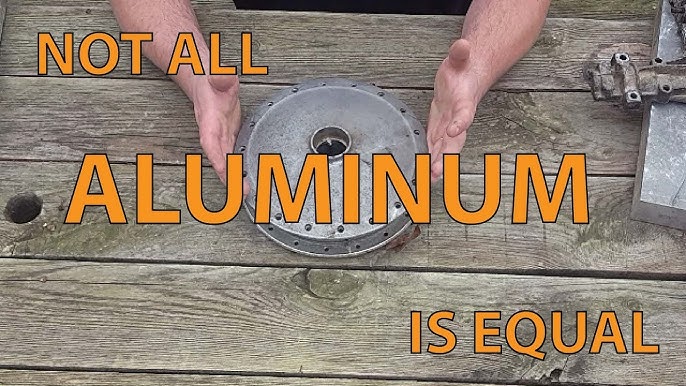The Basic Principles Of Alcast Company
Table of ContentsThe 7-Minute Rule for Alcast CompanyThe Facts About Alcast Company RevealedThe Basic Principles Of Alcast Company What Does Alcast Company Mean?Get This Report about Alcast CompanySome Of Alcast Company
The subtle distinction hinges on the chemical web content. Chemical Contrast of Cast Aluminum Alloys Silicon advertises castability by reducing the alloy's melting temperature level and enhancing fluidness throughout casting. It plays a critical duty in allowing intricate molds to be loaded properly. In addition, silicon contributes to the alloy's stamina and wear resistance, making it valuable in applications where resilience is important, such as automotive parts and engine elements.It also enhances the machinability of the alloy, making it simpler to refine right into finished products. This way, iron adds to the general workability of light weight aluminum alloys. Copper increases electrical conductivity, making it helpful in electrical applications. It additionally boosts corrosion resistance and adds to the alloy's general strength.
Manganese contributes to the toughness of aluminum alloys and boosts workability (aluminum foundry). It is frequently made use of in functioned aluminum products like sheets, extrusions, and profiles. The visibility of manganese help in the alloy's formability and resistance to cracking throughout construction procedures. Magnesium is a lightweight component that gives toughness and impact resistance to light weight aluminum alloys.
What Does Alcast Company Mean?
Zinc enhances the castability of aluminum alloys and assists manage the solidification procedure during spreading. It boosts the alloy's strength and firmness.

The key thermal conductivity, tensile stamina, return toughness, and prolongation vary. Amongst the above alloys, A356 has the highest possible thermal conductivity, and A380 and ADC12 have the most affordable.
All About Alcast Company

In accuracy casting, 6063 is appropriate for applications where complex geometries and top notch surface finishes are paramount. Examples consist of telecommunication enclosures, where the alloy's superior formability permits smooth and aesthetically pleasing styles while maintaining architectural integrity. Likewise, in the Lighting Solutions sector, precision-cast 6063 parts produce stylish and effective lights components that require complex shapes and excellent thermal performance.
The A360 shows exceptional elongation, making it optimal for complicated and thin-walled components. In precision casting applications, A360 is fit for markets such as Consumer Electronic Devices, Telecommunication, and Power Devices.
Alcast Company for Beginners
Its distinct properties make A360 a valuable option for accuracy spreading in these sectors, enhancing item sturdiness and top quality. aluminum metal casting. Aluminum alloy 380, or A380, is a widely used spreading alloy with a number of unique features.
In precision spreading, light weight aluminum 413 shines in the Customer Electronic Devices and Power Tools sectors. This alloy's exceptional rust resistance makes it an exceptional selection for outdoor applications, ensuring durable, long lasting items in the pointed out industries.
Our Alcast Company PDFs
Once you have decided that the light weight aluminum die casting process appropriates for your job, a critical next action is choosing the most suitable alloy. The light weight aluminum alloy you choose will substantially influence both the spreading process and the properties of the last product. Because of this, you must make your decision very carefully and take an informed method.
Identifying the most appropriate aluminum alloy for your application will certainly indicate considering a large range of qualities. The initial group addresses alloy features that impact the manufacturing process.
How Alcast Company can Save You Time, Stress, and Money.
The alloy you select for die spreading directly impacts a number of aspects of the casting process, like how easy the alloy is to collaborate with and if it is prone to casting problems. Warm breaking, additionally known as solidification cracking, is a normal die spreading problem for light weight aluminum alloys that can lead to inner or surface-level tears or fractures.
Specific go to the website light weight aluminum alloys are extra vulnerable to warm cracking than others, and your choice must consider this. It can harm both the actors and the die, so you should look for alloys with high anti-soldering homes.
Deterioration resistance, which is already a significant feature of aluminum, can differ considerably from alloy to alloy and is a necessary particular to take into consideration depending on the ecological conditions your product will be subjected to (aluminum casting manufacturer). Use resistance is one more home commonly looked for in light weight aluminum items and can set apart some alloys